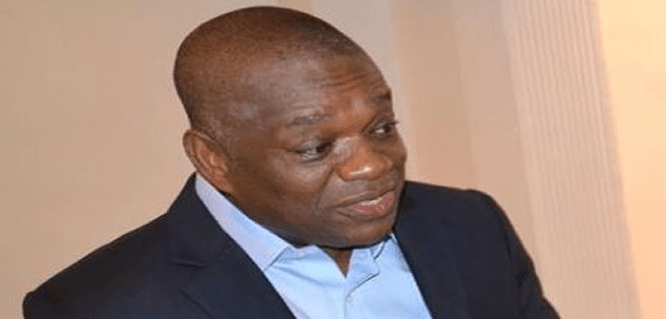By Onyewuchi Ojinnaka
The ruling to be delivered by a Federal High Court sitting at Ikoyi, Lagos State, Nigeria, on July 31 by Justice Mohammed Idris, (recently elevated as Appeal Court judge) on the ‘No Case submission’ filed by former Abia State governor Dr Orji Uzor Kalu and two others, will determine whether they would be discharged and acquitted or continue with their trial in the fraud case of N7.1 billion levelled against them by the Economic and Financial Crimes Commission (EFCC).
The judge fixed July 31 for ruling after the defence team and the prosecution had addressed the court on the sustenance or otherwise of ‘No Case submission’ filed by the defendants Orji Uzor Kalu, his company Slok Nigeria Limited and his former Commissioner for Finance Udeh Jones Udeogu.
It would be recalled that at the last hearing on the case, Justice Idris had dismissed the defendants’ application seeking to throw out the second further amended charge instituted against them by the EFCC.
Justice Idris had while refusing the application made reference to Sections 216 and 217 of the Administration of Criminal Justice Act and held that the prosecution could amend the charge, adding that an alteration of a charge can be allowed at any time.
He further held that the prosecution could not be shut out from filing a second amended charge as the defence had not shown that the amendment would be prejudicial to it.
Immediately after the ruling, Uzor Kalu, Slok Nigeria Limited and Udeogu, were subsequently re-arraigned on the new amended charge.
However, the defendants pleaded not guilty and Justice Idris allowed them to remain on the bail conditions earlier granted them.
After the defendants’ not guilty plea stance, their counsel informed the judge of various “no case submissions” they filed and which had been served on the anti-graft agency.
At this point, the defence team pleaded with Justice Idris for adequate time to respond to the EFCC’s written address in reply, which it said was over 100 pages.
This prompted the trial judge to adjourn the matter until July 25, 2018, to entertain arguments on the “no case’’ submissions.
According to the amended charge filed by the EFCC, Orji Uzor Kalu and other two defendants were alleged to have committed the offence between August, 2001 and September, 2006.
Specifically, the ex-governor was accused of using his firm, Slok Nigeria Ltd., to retain N200 million in an account domiciled in First Inland Bank.
The said sum, according to the EFCC formed part of funds illegally derived from the treasury of the Abia State Government.
The anti-graft agency claimed that Uzor-Kalu, his company (Slok Nig Ltd), one Emeka Abone and Michael Akpan, who are now at large, allegedly collaborated to commit the offence between 2001 and September 2006.
The ex-governor and others were equally alleged to have concealed the genuine origin of a total sum to the tune of N7.2 billion, which the anti-graft agency declared formed part of funds illegally derived from the Abia State Treasury, and converted same into several bank drafts, which were subsequently paid into the account of Slok Nigeria Ltd.
In counts one to 10, the EFCC accused the defendants of retaining about N2.7 billion in different bank accounts, which funds were said to belong to the Abia State Government.
In totality, Uzor Kalu and others were alleged to have diverted over N7.1 billion from the Abia State Government’s treasury, when he held sway as the governor of Abia State.
The offence, according to the EFCC is contravens Sections 14, 15(6), 16, 17 and 21 of the Money Laundering (Prohibition) Act, 2005.
The Commission further maintained that the offence flouts the provisions of the Money Laundering Act of 1995 as amended by the amendment Act No. 9 of 2002 and Section 477 of the Criminal Code Act, Laws of the Federation, 1990.




